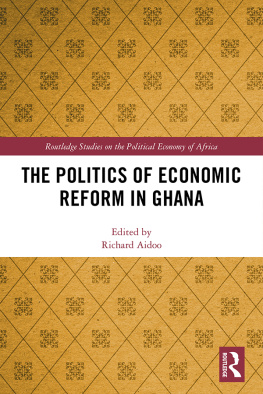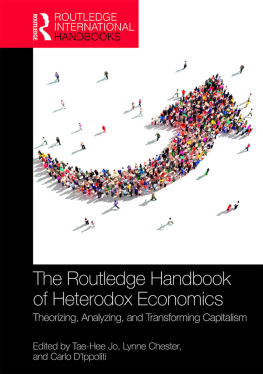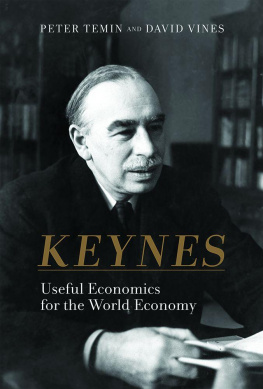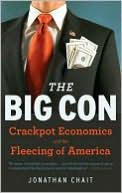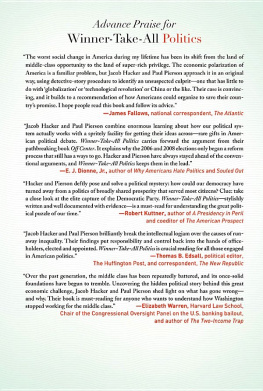HOUGHTON MIFFLIN COMPANY
BOSTON | NEW YORK
2007
Copyright 2007 by Jonathan Chait
ALL RIGHTS RESERVED
For information about permission to reproduce selections from
this book, write to Permissions, Houghton Mifflin Company,
215 Park Avenue South, New York, New York 10003.
www.houghtonmifflinbooks.com
Library of Congress Cataloging-in-Publication Data
Chait, Jonathan.
The big con : the true story of how Washington got hoodwinked
and hijacked by crackpot economics / Jonathan Chait.
p. cm.
Includes bibliographical references and index.
ISBN -13: 978-0-618-68540-0
ISBN -10: 0-618-68540-5
1. Lobbying Moral and ethical aspects United States.
2. Economists United States Political activity. 3. Political
corruptionUnited States. 4.DeceptionPolitical aspects
United States. 5. United StatesEconomic policyMoral
and ethical aspects. I. Title.
JK 1118. C 43 2007
320.973 dc22 2007014001
Printed in the United States of America
Book design by Victoria Hartman
QUM 10 9 8 7 6 5 4 3 2 1
To my two familiesfirst, Mom, Dad, and Daniel, and now Robin, Joanna, and Benjamin. They have given me a life of boundless joy.
CONTENTS
Acknowledgments ix
Introduction 1
Part I: The Transformation of the Republican Party
Charlatans and Cranks 13
The Sum of All Lobbies 45
Driving Out the Heretics 80
The Necessity of Deceit 115
Part II: The Corruption of American Politics
Media: The Dog That Didn't Watch 139
How Washington Imagines Character 159
The Abuse of Power 189
The Mainstreaming of Radicalism 219
Conclusion: Plutocracy in America 262
Notes 267
Index 284
ACKNOWLEDGMENTS
My life is hard to understand. I'm a compulsive procrastinator, I'm not particularly good-looking, and though I do a few things well, I do many others badly. And yet my life has gone far better than I ever could have hoped. I often puzzle over my inexplicable good fortune. The best explanation I can give is that at every stage of life I've been surrounded by people who saved me from my failings.
My parents, David and Ilene, have always been warm, encouraging, smart, and funny. My mother encouraged me to read, write, and think from an early age, constantly taking me to the library. My father explained to me history, politics, science, and almost everything under the sun in concise, entertaining ways. I only hope that as a parent I can give my children the warmth and generosity that my parents have shown to me. My brother Daniel would no doubt vouch for this. Daniel is brilliant and hilarious, a lifelong intellectual influence and a wonderful friend.
My childhood best friend, Michael Mullen, taught me a lot andbeing far tougher than Isaved me from some beatings. In high school I became great friends with David Lenter and Joel Rubenstein, who debated politics with me and encouraged me (in vain, alas) to apply myself in school. In college I made lifelong friendships with Geoff Earle and Jay Mazumdar, who stood together with me at the Michigan Daily when it was not popular to do so. After college I was hired at the American Prospect by Jonathan Cohn, my first mentor, who remains a close friend and is one of the finest human beings I have ever met. At the Prospect, Paul Starr was a sharp and brilliant editor, and Robert Kuttner generously let me publish, even though I was, in his words, "a damn moderate."
After a year at the Prospect I came to The New Republic, my journalistic heaven. I learned much from every editor I worked withAndrew Sullivan, the late (and mourned) Michael Kelly, Charles Lane, and Peter Beinart. When the current editor, Frank Foer, was first named, I was ecstatic. Frank is a great friend, and working under him has been the highlight of my career. All those editors were selected by Marty Peretz, who sustained this wonderful institution.
My close friends at TNR have included Michael Crowley (who started with me as an intern), Hanna Rosin (my second mentor), Margaret Talbot, Jonathan Cohn (again), David Grann, Ryan Lizza, Michelle Cottle, Noam Scheiber, Jason Zengerle, Leon Weiseltier, and John Judis. Michael Kinsley taught me a huge amount simply by publishing brilliant work. I enjoy the company of others whom I haven't known quite as long or as well, and I benefit from their brilliance every day. In fact, I wrote this book in TNR's offices rather than holing up in isolation, as most authors do. If there's a more fun place to work, I haven't heard of it.
Chris Orra great friend and colleaguedeserves special mention for helping me through every stage of this book. His imprint on it is profound. David Grann, Michael Crowley, Jonathan Cohn, Frank Foer, and Hanna Rosin provided valuable input. I hired the talented young writer Elspeth Reeve to do the endnotes, and she saved me from innumerable mistakes.
When I started this book, friends advised me that book editors do very little. Somehow I ended up with Webster Younce, a rare talent who poured himself into this project and helped shape every facet. My agent, Gail Ross, was one of the first to believe in me and did a fantastic job. (If you need an agent, look her up; several of my writer friends already have.)
I owe thanks as well to my loving grandparents Miriam Chait, who passed away a dozen years ago, and Bunny and Leonard Seidman. Arlene Swern, the best mother-in-law a guy could have, helped me find the time to write this book. (I cranked out the first outline in her guest bedroom while she entertained my young daughter.) My equally sweet father-in-law, David Grayson, caught a cringe-inducing mistake in the final drafts.
When I was young, I was terrified of and hopelessly inept with girls. By sheer good fortune I ended up with Robin, my beautiful, sharp, funny, oh-so-sweet bride. This was the greatest break of all. I still don't know quite how it happened, but I give thanks every day that I get to spend my life with her. The lesson here is that you don't have to be good, or even competent, at courtshipyou just have to hit the jackpot once. Robin cheerfully indulged my many late nights spent making up for unproductive days. Our children, Joanna and Benjy, are a daily wonder. I boast about them constantly.
This acknowledgment is all too short, and I have probably left out important people. Here is why. I simply forgot to write one until, shortly before publication, it occurred to me that I should. I wrote this very quickly, and the publisher of this book heroically wedged it in at the las tthe very, very lastminute. Nobody who knows me would find this the least bit surprising.
INTRODUCTION
I have this problem. Whenever I try to explain what's happening in American politicsI mean, what's really happeningI wind up sounding a bit like an unhinged conspiracy theorist. But honestly, I'm not. My politics are actually quite moderate. (Most real lefties, in fact, think I'm a Washington establishment sellout.) So please give let me a chance to explain myself when I tell you the following: American politics has been hijacked by a tiny coterie of right-wing economic extremists, some of them ideological zealots, others merely greedy, a few of them possibly insane. (Stay with me.)
The scope of their triumph is breathtaking. Over the course of the last three decades, they have moved from the right-wing fringe to the commanding heights of the national agenda. Notions that would have been laughed at a generation agothat cutting taxes for the very rich is the best response to any and every economic circumstance, or that it is perfectly appropriate to turn the most rapacious and self-interested elements of the business lobby into essentially an arm of the federal governmentare now so pervasive, they barely attract any notice.
Next page

